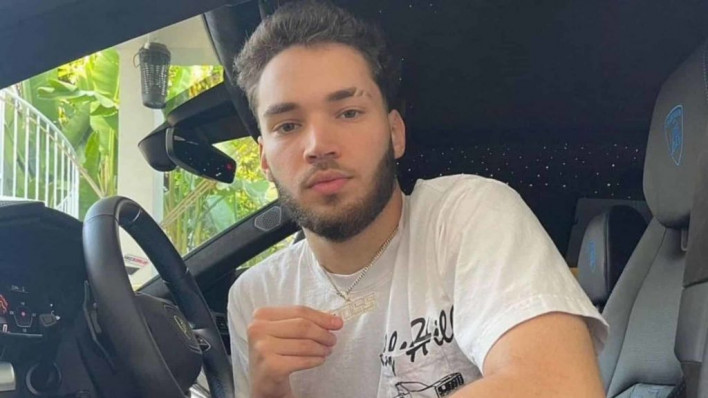
Twitch Streamer Adin Ross proudly stated that he thought it was fun to promote gambling to underage children when confronted about gambling by Ethan from H3 on Monday.
At the conclusion of a debate about on-stream gambling, Ross asked Ethan if he has a soul since he "doesn't smile much". In response, Ethan replied, "You have no problem peddling gambling to children, that's a more soulless act than not smiling, wouldn't you agree?"
"It's fun!" Adin said with a grin on his face.
The encounter took place on a the "ultimate podcast" featuring H3H3, Adin Ross, HasanAbi, and Mizkif. Throughout a nearly 1-hour discussion, Ross continued to defend his decision to take and continue his gambling sponsorship, while also admitting it was morally wrong and confirming that he won't renew the sponsorship.
The entire debate demonstrated the cavalier attitude of Adin Ross and many other streamers when it comes to promoting dangerous gambling pathologies on their streams, often to young impressionable fans. They can see the problem with it, but don't want to admit the problem is serious since they are getting paid big money to call gambling a moral gray area.
The rise of gambling sponsorship meta
Adin Ross is one of many streamers who have wholeheartedly embraced the controversial practice of streaming highly addictive casino games on his Twitch channel. According to a recent WIRED article on the issue of gambling on Twitch, 64 of the top 1000 streamers have engaged in gambling on their stream in recent months.
In June, Adin leaked a message from a gambling sponsor revealing that streamers at his level are making 2 million+ dollars a month to promote gambling sites. So even if Ross does quit as he has promised, he has still made it out with significant money from his sponsored gambling streams.
Adin has also confirmed on Monday that he gambles with house money, so he isn't actually losing his own money when he wins. Many have criticized this practice since it encourages streamers to model more reckless behaviors for their audiences than they would engage in if it were their money on the line.
READ MORE
[Opinion] Streamers should care about age gating gambling even if Twitch doesn't
Even for streamers like Trainwrecks, who have an older audience and gamble with their own money, they are still promoting gambling, a behavior that is universally accepted to be dangerous and a vice.
Twitch turns a blind eye to the dangers of child gambling
The growing gambling meta has drawn criticism from people like H3, Mizkif, and former Twitch streamer and influencer consultant Devin Nash. While Adin, xQc, and other gambling streamers have brushed off criticism of their gambling promotions as "morally gray", the dangers of underage exposure to gambling are well documented.
Some streamers, including Adin Ross and Felix "xQc" Lengyel, don't age-gate their gambling streams in many cases. As a result, they expose thousands of impressionable children and adolescent viewers across Twitch to addictive gambling behaviors and reinforce gambling behaviors, while in many cases being paid by the very sites they are using to gamble.
Nash released a video on Monday, in which he named gambling on Twitch as one of the key reasons he "lost faith in Twitch" and chose to leave the platform entirely.
According to Nash's analysis, while gambling streams may be good for individual streamers and short-term viewership, embracing the gambling meta will have a negative impact on the long-term reputation of Twitch as a brand advertising destination.
In the face of the growing gambling meta, some have called for tighter rules, while others (like Nash) have called for a banning of the content entirely.
Twitch has done next to nothing to slow the gambling meta, beyond confirming that they are "closely monitoring the situation."
In a comment to Inven Global, Twitch confirmed that gambling was allowed on Twitch so long as it doesn't violate any specific laws, so it seems they also have little intention to address this issue unless the gambling itself is also illegal. Many streamers, including Ross, have confirmed that they sometimes travel to places where online gambling is legal to conduct their sponsored gambling streams.
Even if Twitch did ban gambling, many have their doubts about Twitch's ability to enforce such a rule, given the inconsistent and unreliable enforcement of their sexual content rules over the past several months.
READ MORE
Twitch's adult content problem persists as ASMR streams become the new meta
Of course, Twitch streamers don't have to wait for the platform to regulate them. They can self-regulate gambling content by age-gating their gambling streams and clearly disclose when a gambling stream is sponsored, or quit entirely as H3 has suggested. But that all starts by admitting that promoting gambling is a problem.
-

Aaron is an esports reporter with a background in media, technology, and communication education.
Sort by:
Comments :0





